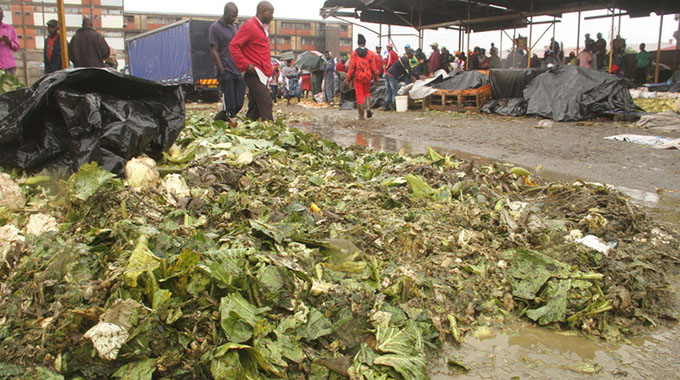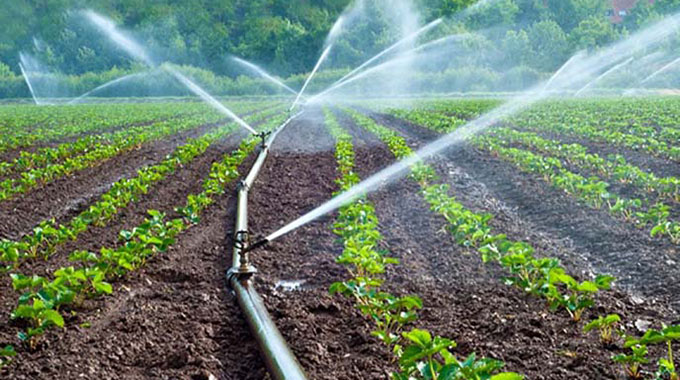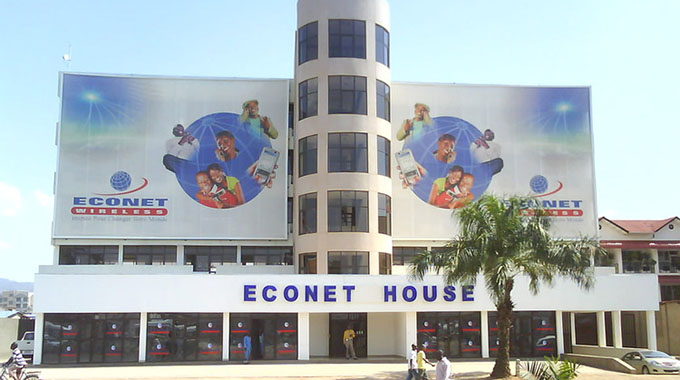Infrastructure development key to Rural Industrialization

Edgar Vhera Agriculture Specialist Writer
THE GOVERNMENT’S push to industrialise rural areas must be consolidated with the development of reliable and proper market structures to curtail losses of perishable horticultural produce that have seen farmers losing at least 60 percent of their tomatoes to the prevailing hot weather and poor storage conditions at Mbare Musika.
Knowledge Transfer Africa chief executive officer Mr Charles Dhehwa said this recently when revealed that heaps of rotten tomatoes were being thrown into skip bins as waste at Mbare fresh produce market daily, depriving producers of their deserved revenue.
“The Government should invest in market infrastructure in the same way it is investing in irrigation, dams and roads if horticultural produce is to be preserved and sold in its best state.
“The city of Harare should also find alternative space for this important food market and bring sanity plus orderliness to the trading activities at Mbare market,” observed Mr Dhehwa.
Farmers are incurring heavy losses in fresh fruits and vegetables due to excessive heat and lack of sheds and better cooling facilities. Mr Dhewa added that the high temperatures coupled with the absence of cold chain infrastructure to preserve the produce from over-heating was the farmers’ biggest let-down.
The custodians of Mbare Musika, City of Harare’s acting corporate communications manager Mr Innocent Ruwende revealed that there were space constraints but they had since decentralised the fresh produce market to Highfields, Mabvuku and Hatfield.
“The Mbare fresh produce market is the largest in the country in terms of volume and value of trade. Among the infrastructure installed are shades and tables with the market starting trading operations for wholesale at 0500 hours up to 1100 in the morning. Retail starts thereafter,” commented Mr Ruwende.
City of Harare has also reviewed downwards all charges on trading activities in a move meant to increase farmers and traders’ incomes.
“We responded to pleas from farmers that our charges were on the upward side and slashed individual farmer market fees from US$16 to US$10 per day.
“There is no cold-chain infrastructure but we are looking for partners to invest in that area. However, in the event of fresh produce rotting, and in response to environmental awareness calls, we have installed biogas digesters built in collaboration with the European Union,” continued Mr Ruwende.
The absence of cold-chain infrastructure at the market has left farmers smacking from heavy losses especially when their produce fails to find buyers given that the market is usually flooded with the same goods.
Smallholder farmers from Honde Valley who are into banana production have also bemoaned the lack of markets in their locality and the poor state of roads, which has forced them to sell their bananas to local middlemen for as low as US$0, 20 per kilogramme yet they could easily peg prices at US$0, 42 per kilogramme if selling at real markets.
Lack of cold chain infrastructure is causing the country to import crops that it could have stored for increased shelf life and released gradually as dictated by demand on the local market.
Tomatoes, for instance, can be value added and stored before being released into the market at different intervals when there is demand. This can also enable the country to export the processed products and earn foreign currency.
The same can also be done to oranges, apples, bananas and many other horticulture products.
In 2021 the country imported plums, fresh apples and grapes on a monthly basis.
The Adventist Development and Relief Agency (ADRA) Zimbabwe has since established a cold chain storage facility in Bulawayo to assist farmers caught up in a similar situation.
On the one hand, the Government through the Smallholder Irrigation and Revitalisation Programme has also invested in a US$55 000 state-of-the-art post-harvest and cooling facility that will benefit farmers in four irrigation schemes in Lower Gweru. The facility will help farmers to sort, grade, cool and store their produce until it reaches the final disposal point. Post-harvest losses have been estimated at over 30 percent with horticultural produce the hardest-hit.










Comments